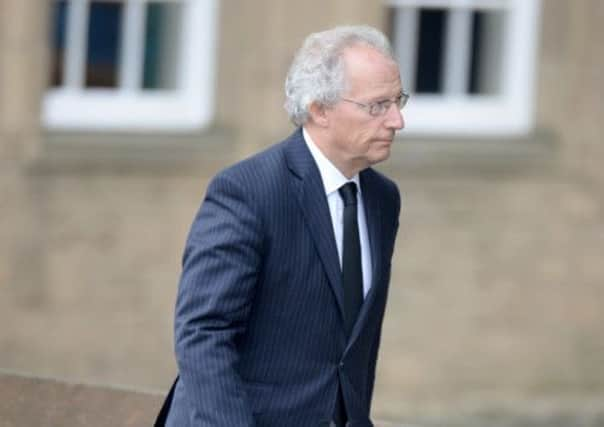Labour critics call for McLeish to join SNP


The former first minister’s warning that Scotland could vote Yes rather than remain in a “divided Britain” run by a Tory-led coalition led to party colleagues suggesting his contributions to the independence debate were helping the SNP.
Last night, Labour peer Lord Foulkes said Labour’s “anger” over Mr McLeish’s views was giving way to “resignation”.
Advertisement
Hide AdAdvertisement
Hide Ad“There have been a lot of raised eyebrows today and shrugging of shoulders,” Lord Foulkes said. “A lot of people have been using Twitter to ask why he doesn’t go the whole hog and join the SNP.
“But I wouldn’t be surprised if Alex Salmond has told him that he is more useful to them remaining in the Labour Party.”
Despite Twitter speculation that Mr McLeish may change sides to campaign for independence, the former Labour leader is adamant that he remains a committed unionist despite his trenchant criticisms of the No campaign and his own party.
In an article for The Scotsman yesterday, Mr McLeish claimed the UK was becoming “intolerant” and “unfair”, arguing that a “perfect storm” was brewing in London, which could encourage Scots to vote for independence.
His article also criticised the Better Together campaign for failing to win over Scots and claimed that Labour had to do more to present a vision of a reformed Union, saying it was not doing enough to challenge the SNP’s dominance in Scotland.
Labour has indicated that it is prepared to play a role in devolving substantial new powers for the Scottish Parliament, should the electorate vote to remain within the UK.
Scottish Labour has set up a Devolution Commission which is looking at new powers, including Holyrood having a greater say over income tax. Labour’s approach, however, has been criticised for being short on detail.
Mr McLeish characterised Better Together, led by the former Labour chancellor Alistair Darling, as a “thoroughly negative” campaign which risked “alienating many Scots who want to vote for the Union but feel increasingly insulted by endless threats of famine, pestilence, plague and aliens if they dared vote for independence”.
Advertisement
Hide AdAdvertisement
Hide AdOther Labour politicians disagreed with Mr McLeish’s critique, arguing that it made sense for Better Together to poke holes in the Yes campaign’s arguments.
Michael McMahon, Labour MSP for Uddingston and Bellshill, said: “It seems that what he says suits the Yes campaign. Nobody in the Better Together campaign pays any attention. But if he wants to keep saying these sorts of things, I am sure Yes Scotland will be very happy with him.
“Henry goes on about negativity, but perhaps just once he could have something positive to say about his colleagues in the Better Together campaign. He is entitled to pontificate about what he sees as the problems of the Better Together campaign, but I believe that we have to challenge the assertions made by the Scottish Government and the dishonesty of the independence campaign.”
Last night Mr McLeish said he would not “dignify” Lord Foulkes’s suggestion that he remained within Labour to suit Mr Salmond with a comment. However, he defended his article.
“Labour has to wake up in relation to the constitutional issues so that it can take on the SNP, but nothing has happened,” Mr McLeish said. “My position has always been that we should be sticking with the Union, but it should be a reformed Union.”